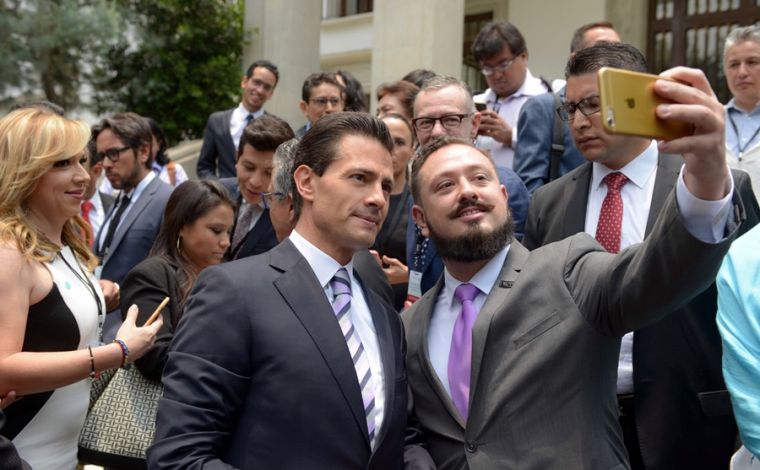Mexico's ruling party suffers 'severe setback' in polls after president bared support for gay marriage

Mexican President Enrique Peña Nieto suffered a "severe setback'' in local elections on Sunday after he announced plans to recognise gay marriage and homosexual adoption throughout the country, reports say.
Mexicans voted for the conservative opposition party in seven of the 12 states during the June 5 polls. The president's Institutional Revolutionary Party (PRI) led in only five states, the Catholic News Agency (CNA) reports.
Pro-family advocates have described the election result as a "protest vote'' against the PRI's policies, one of which favours constitutional reforms to recognise gay marriage and amendments to the Federal Civil Code to allow gay adoption.
More than 1,000 organisations reportedly joined together to form the National Front for the Family (FNF) following the president's expression of support for same-sex marriage. The team is composed of the National Union of Parents, Family Network, ConFamilia, CitizenGo, HazteOir, Dilo Bien, and Mexico is One for the Children, among others.
"The important part was that in less than three weeks an organisation was created that was able to mobilise an entire country against an initiative of the president attacking the family, calling for a protest vote against him and his party," Juan Dabdoub Giacomán, president of the Mexican Council for the Family (ConFamilia) told CNA.
He added: "We don't want [the reelection] of a party like PRI, which has openly declared itself, through the voice of its president, as an anti-family party.''
Carlos Alberto Ramirez Ambriz, spokesman for the FNF, said Peña Nieto "launched an attack against the family thinking that there would be no consequences for their political operations. However, Mexico has spoken at the ballot box; the affront against the family has cost the president and the party that supports him dearly.''
Apart from issues affecting the family, there is also reportedly a growing discontent among Mexicans with PRI's inability to manage the country's struggling economy, rampant corruption and violent crime.
According to Giacomán, the protest does not end with the result of the votes as the coalition is still going to meet "to plan actions that will continue until the 2018 presidential elections."
Analysts say the results of the local elections "serve as an indication as to what the 2018 presidential vote may be like.'' The presidential election is set for July 2018.
Mexican states have began to recognise same-sex marriages after Mexico's Supreme Court ruled last year that it was unconstitutional for states to ban LGBT couples from marrying.











